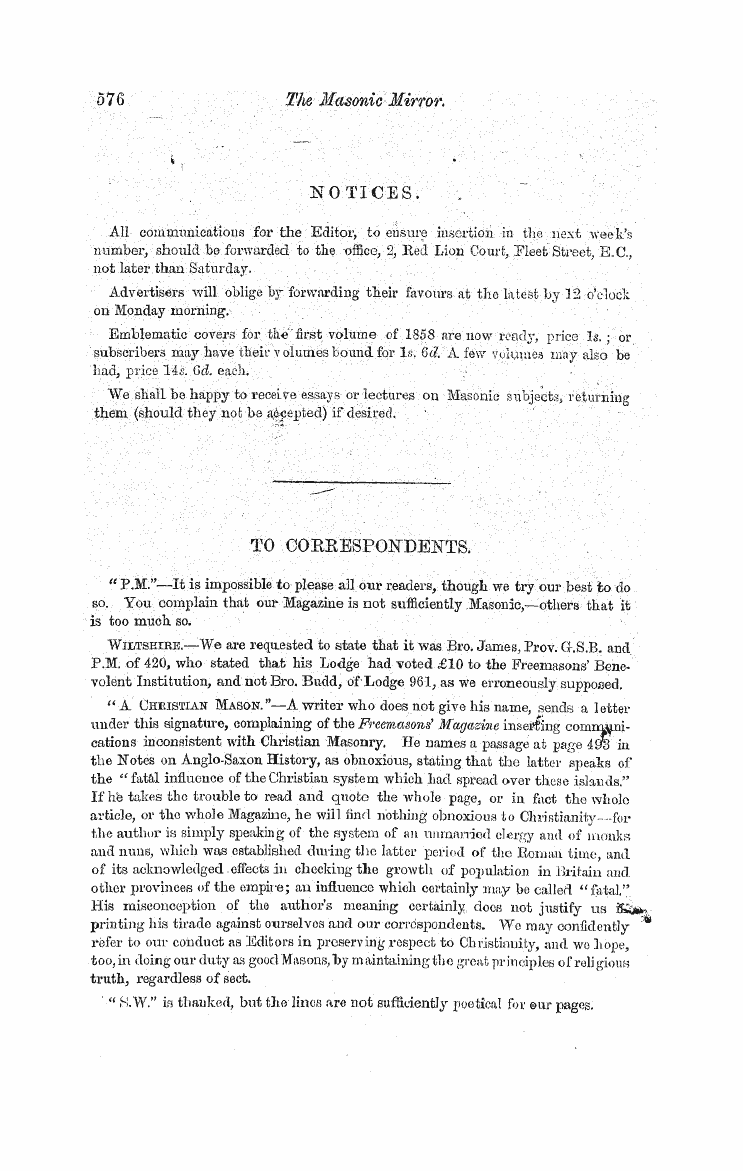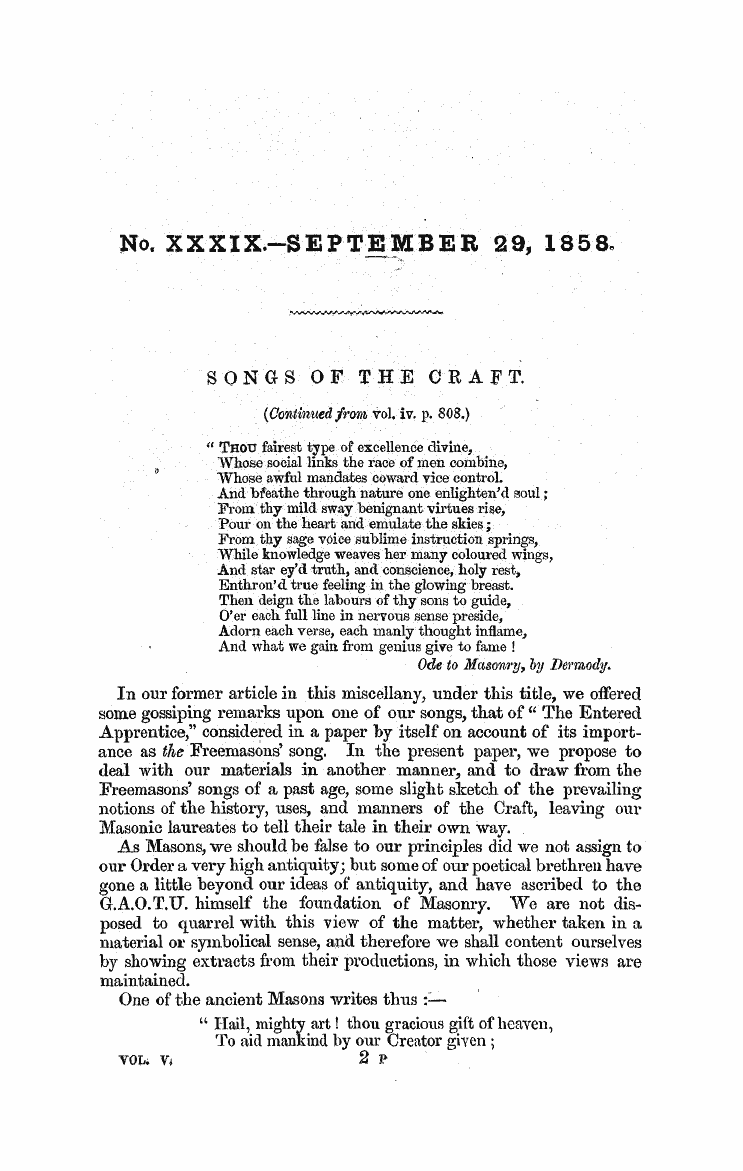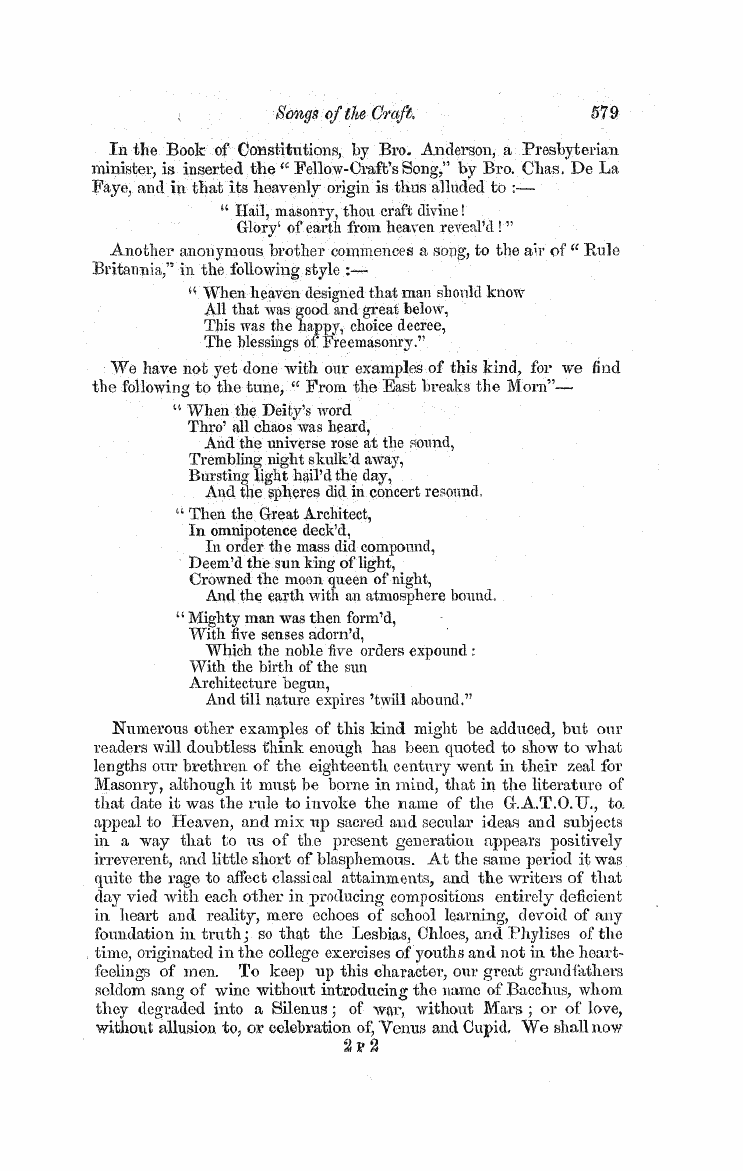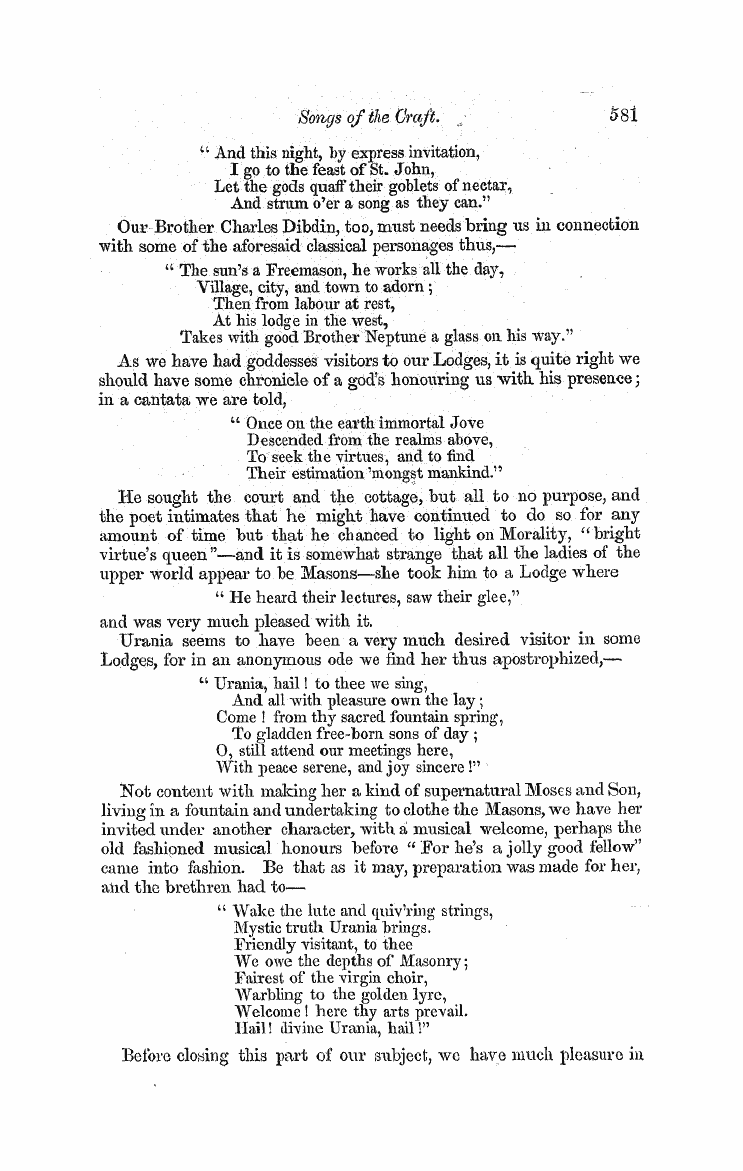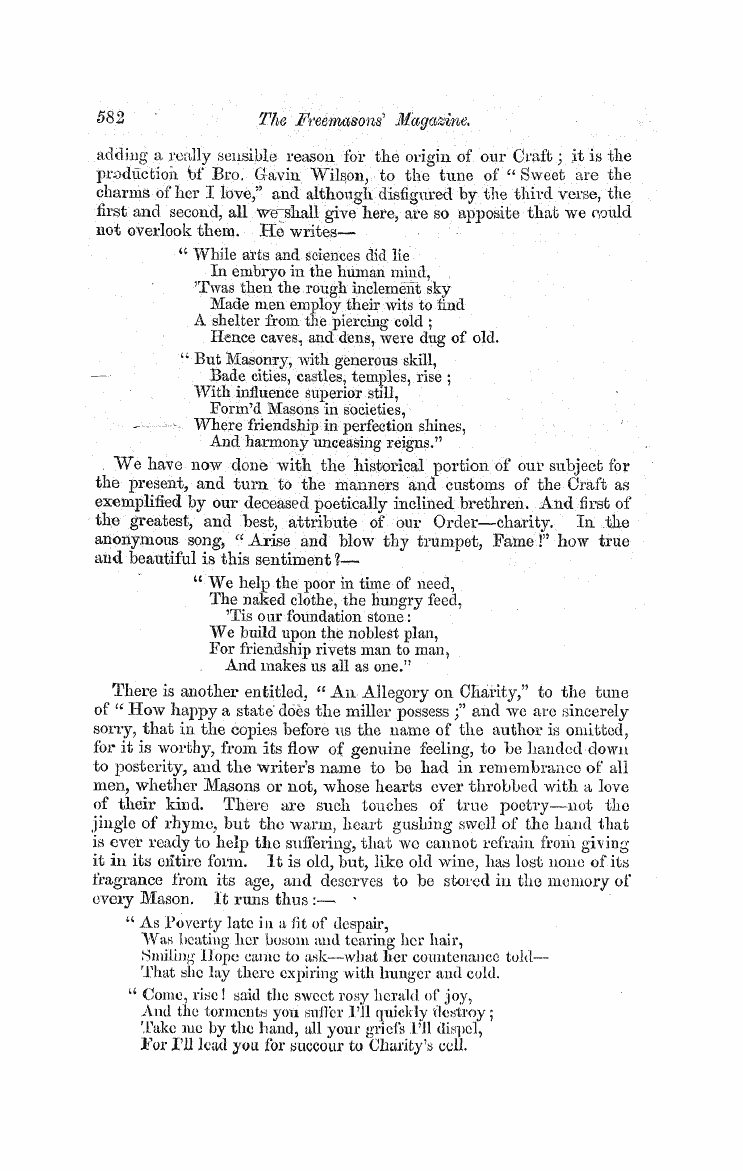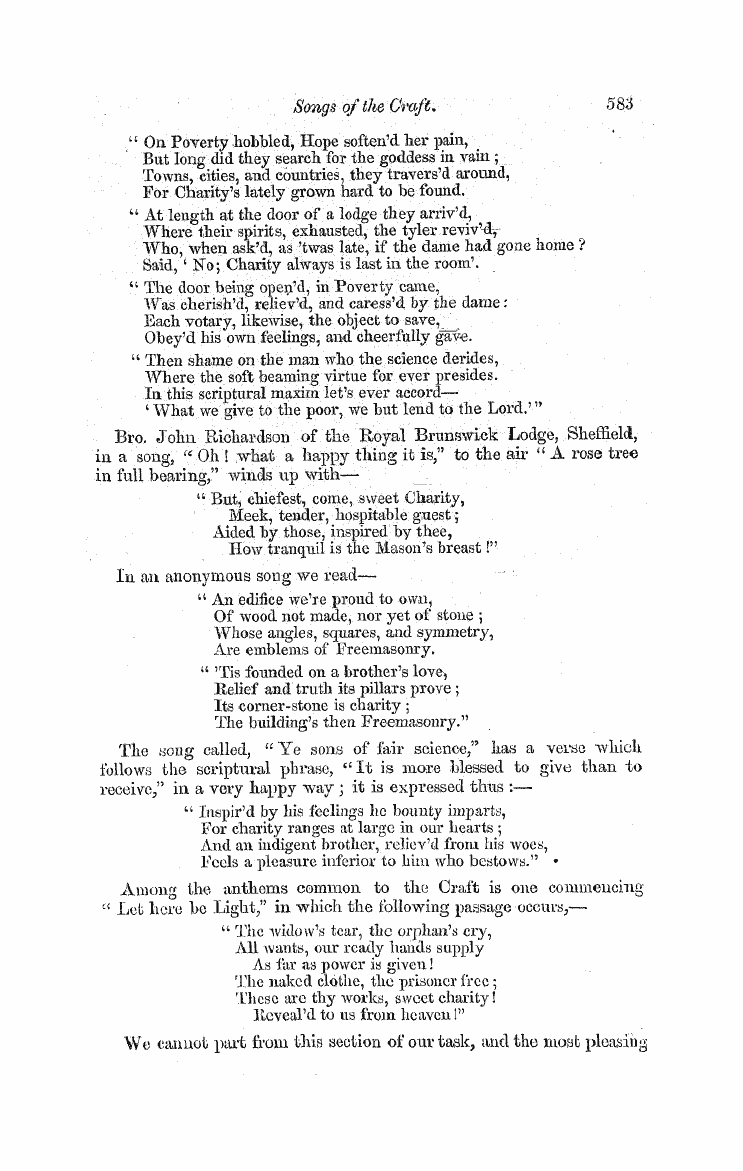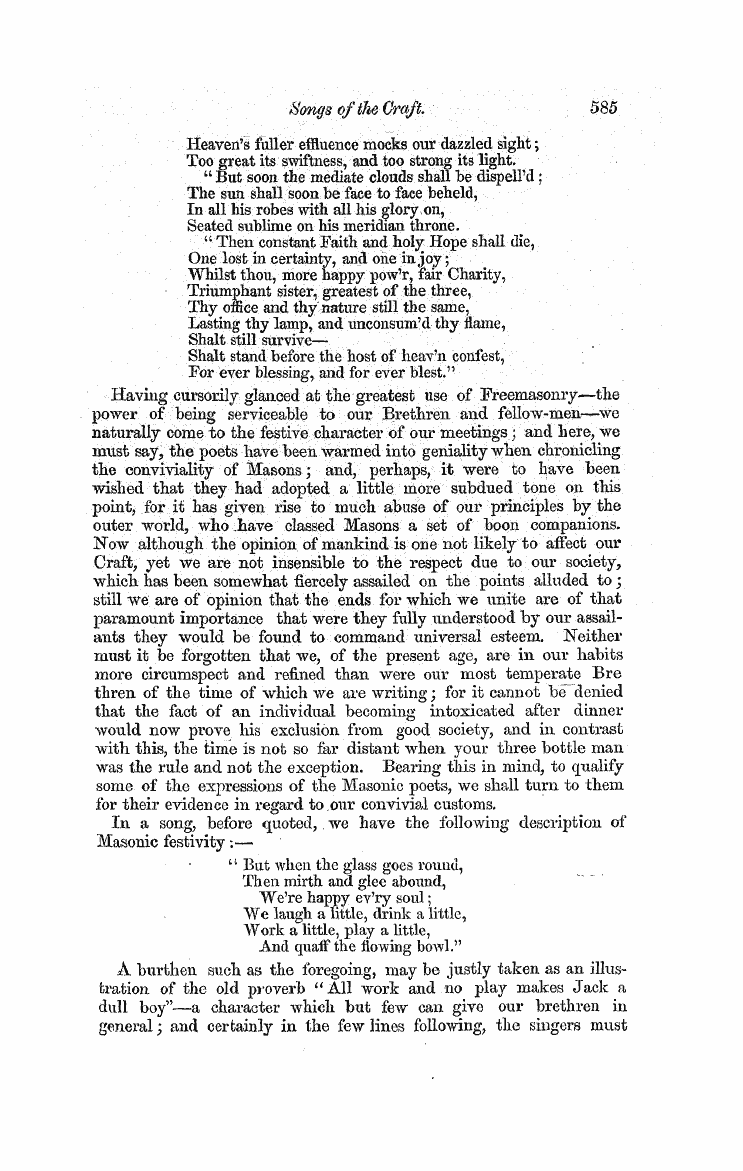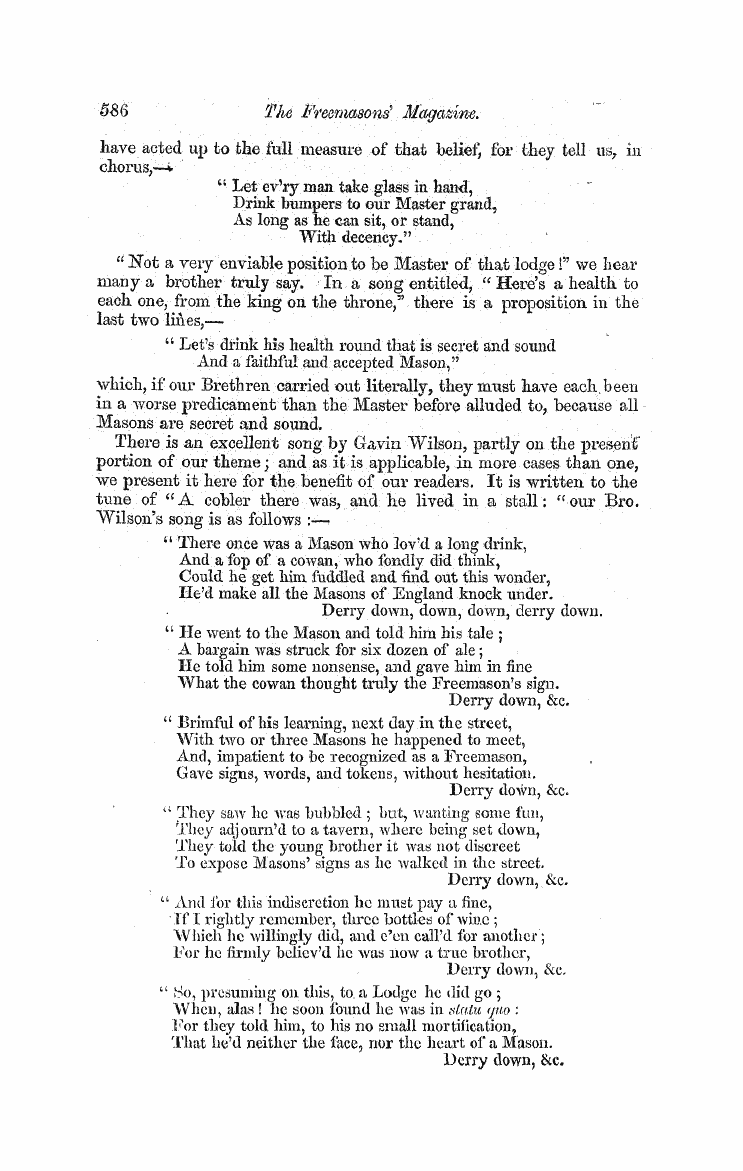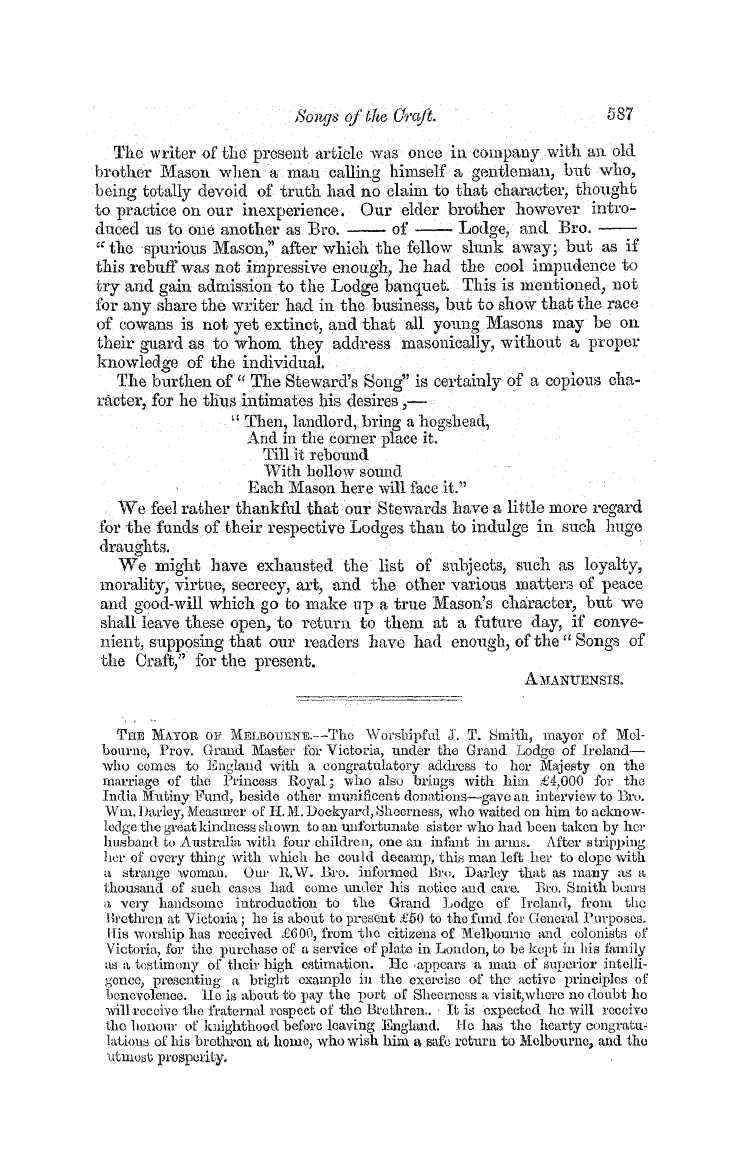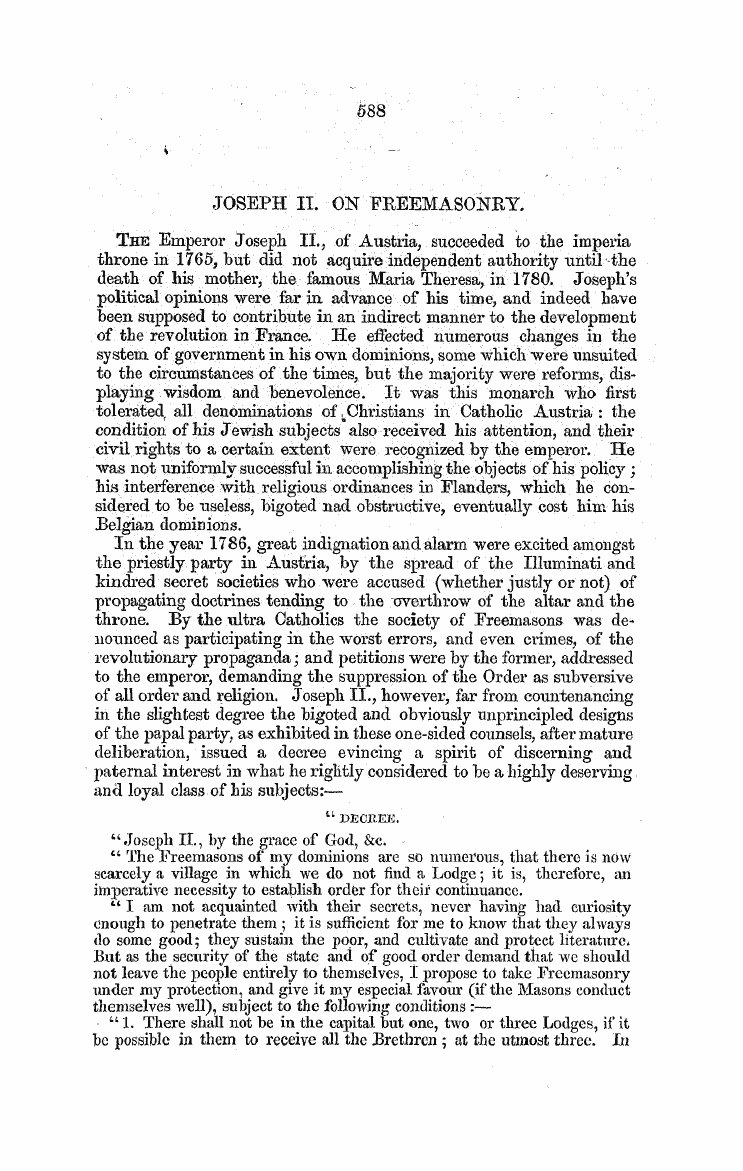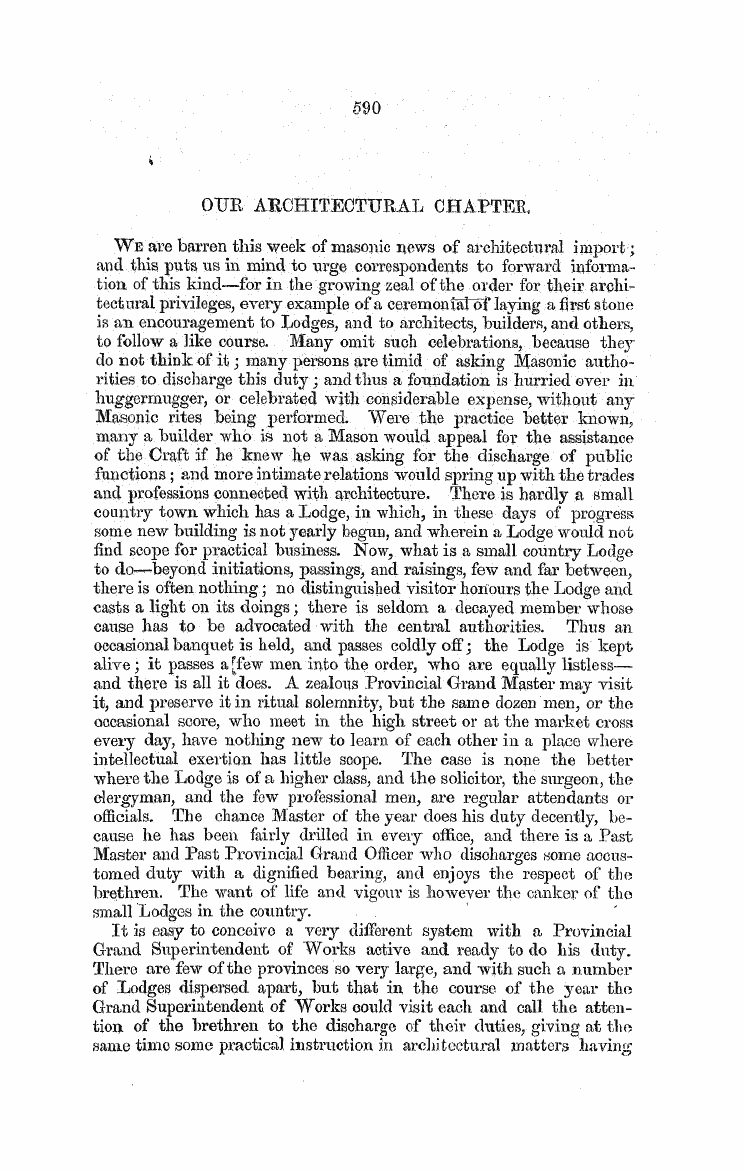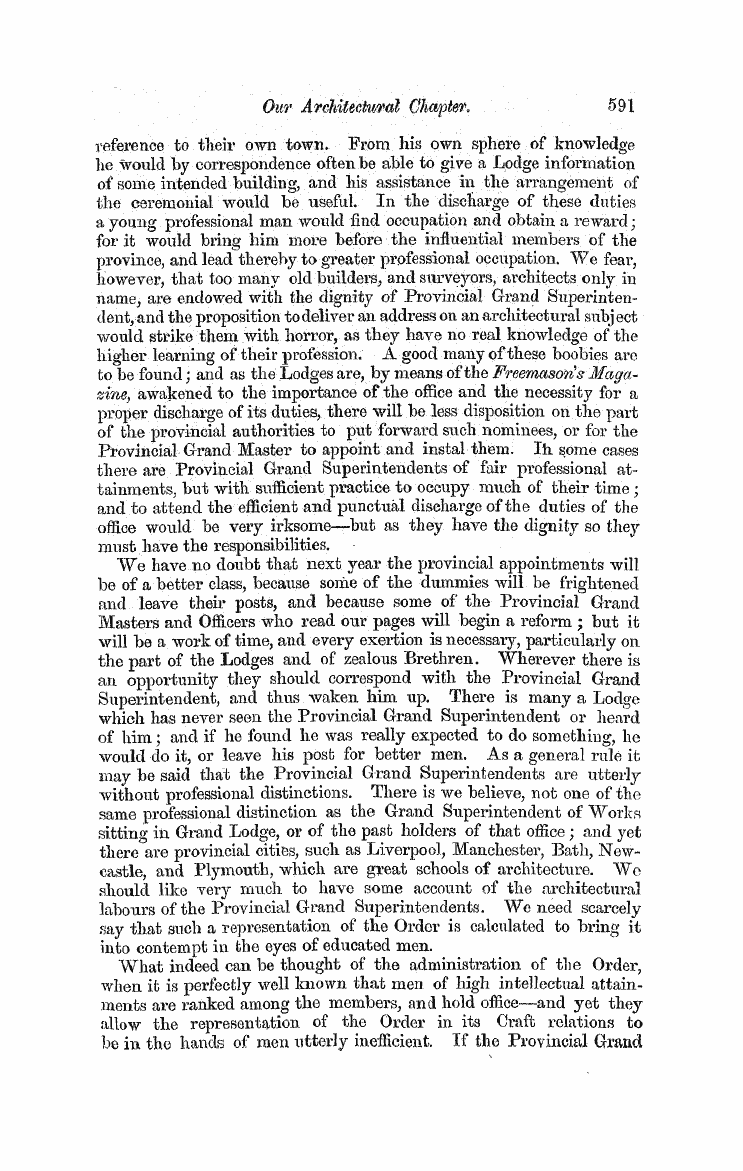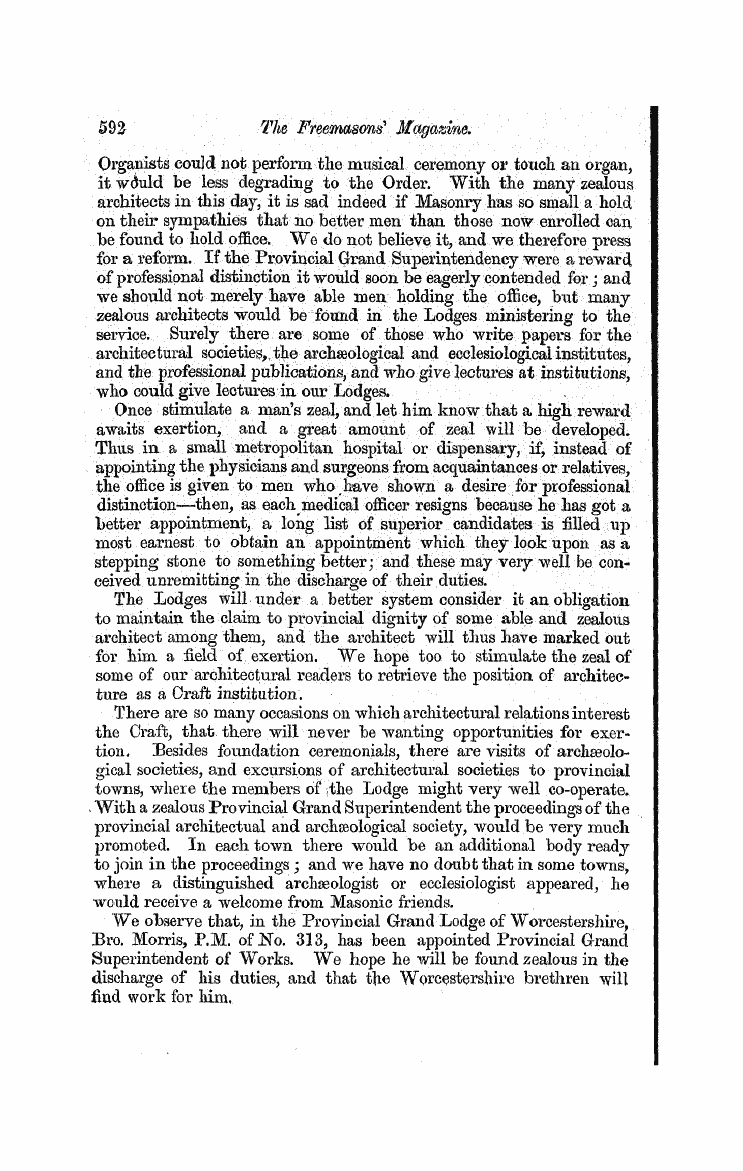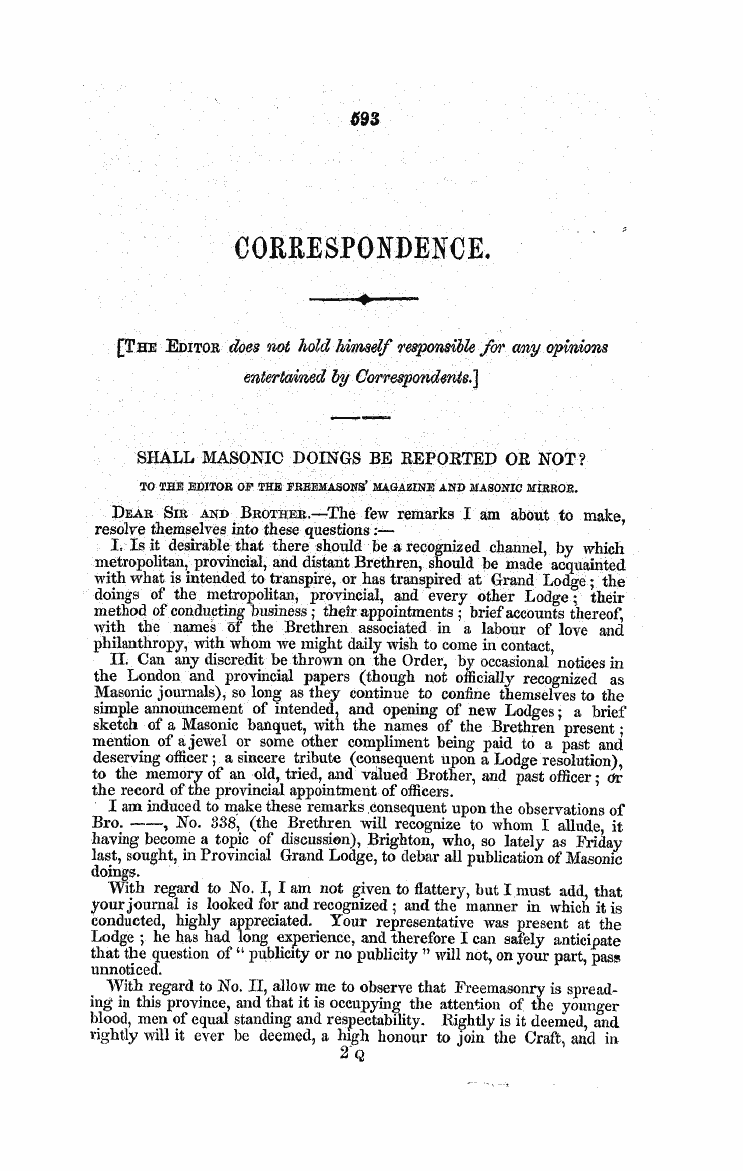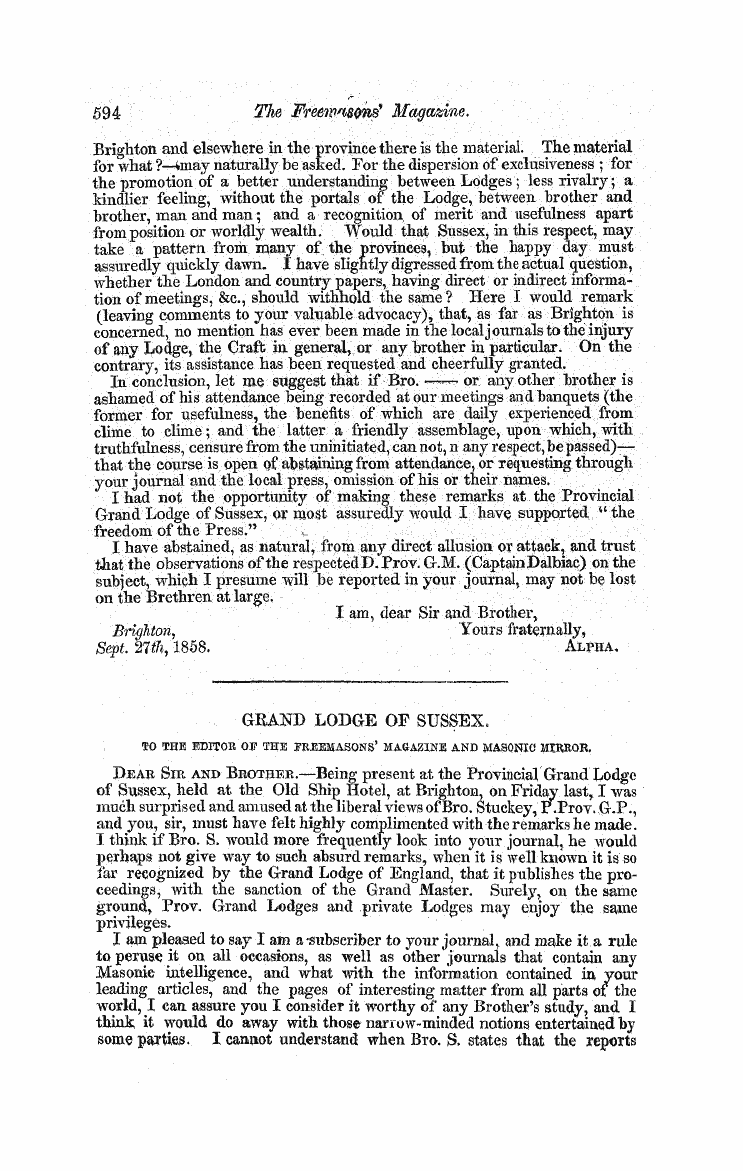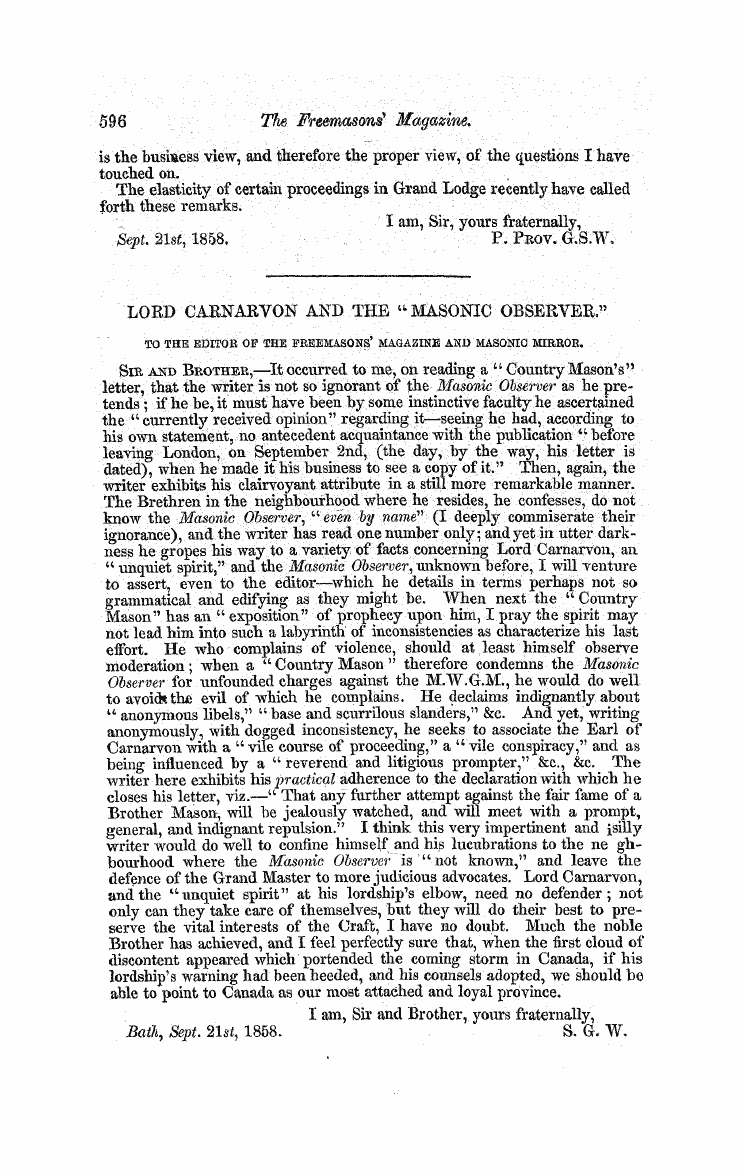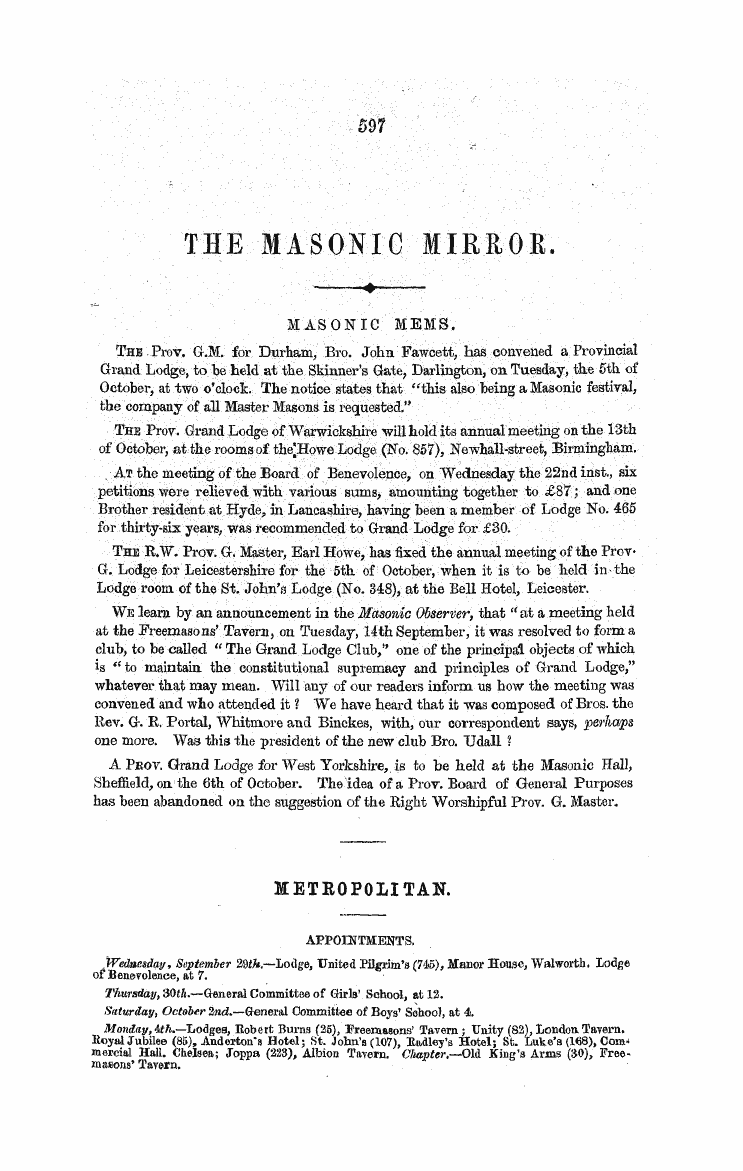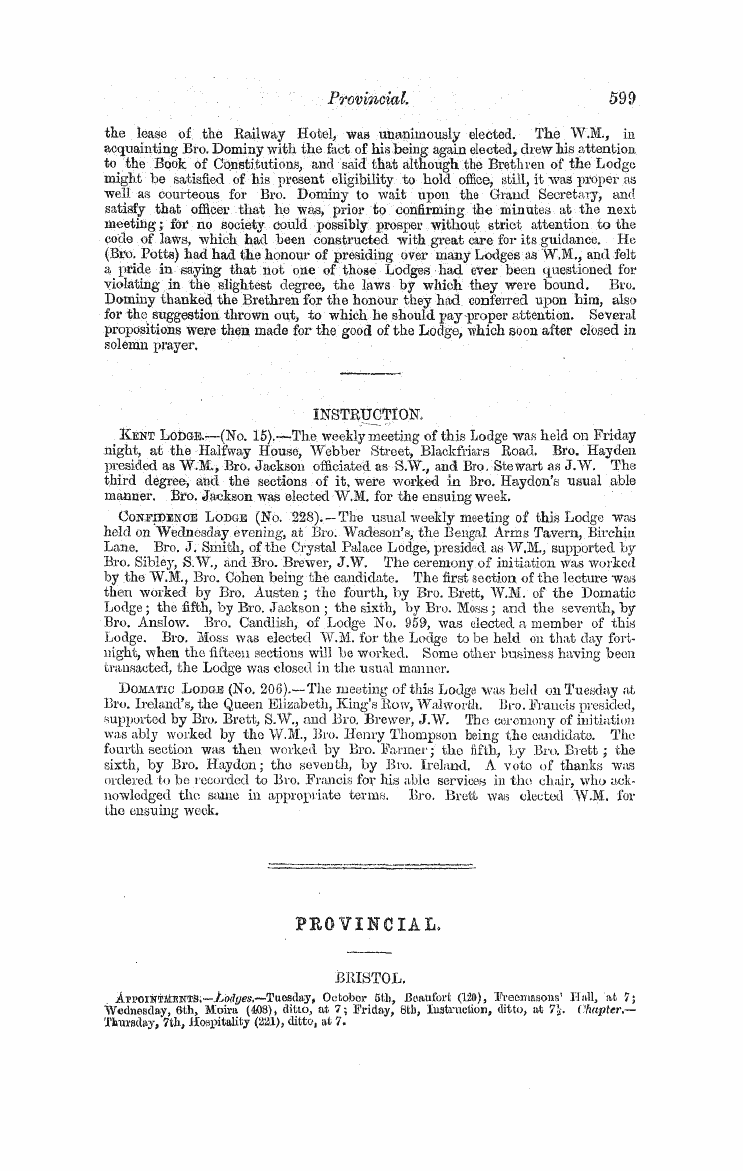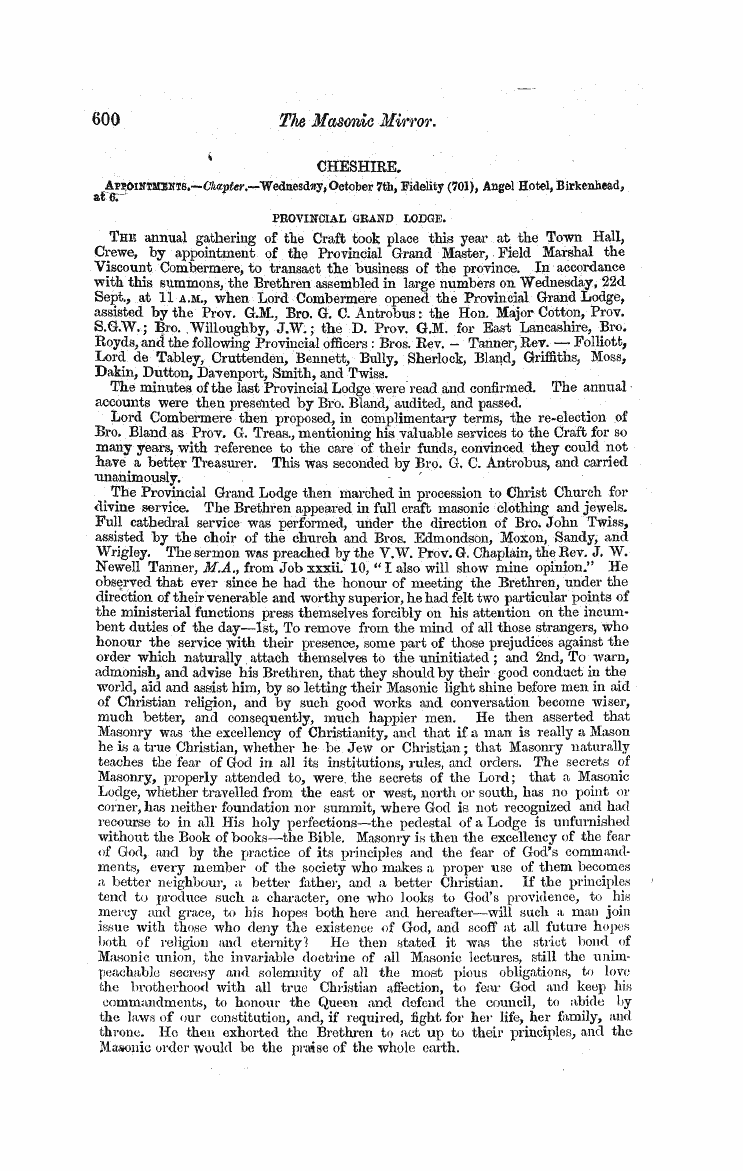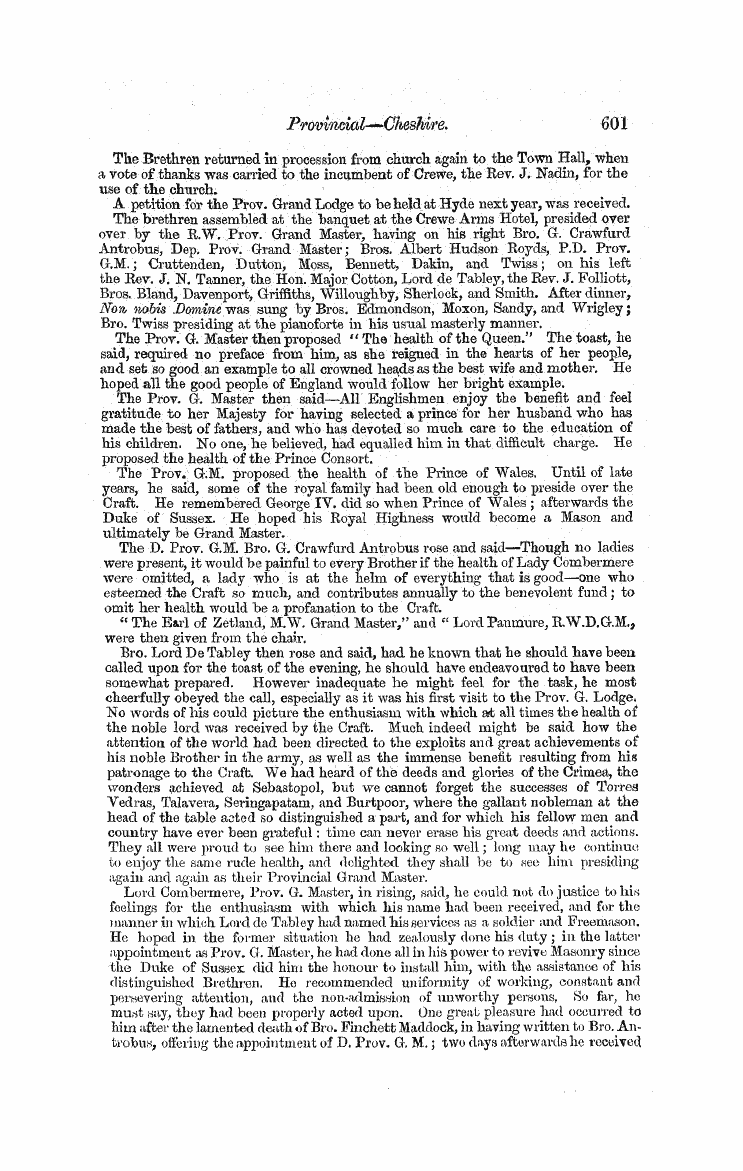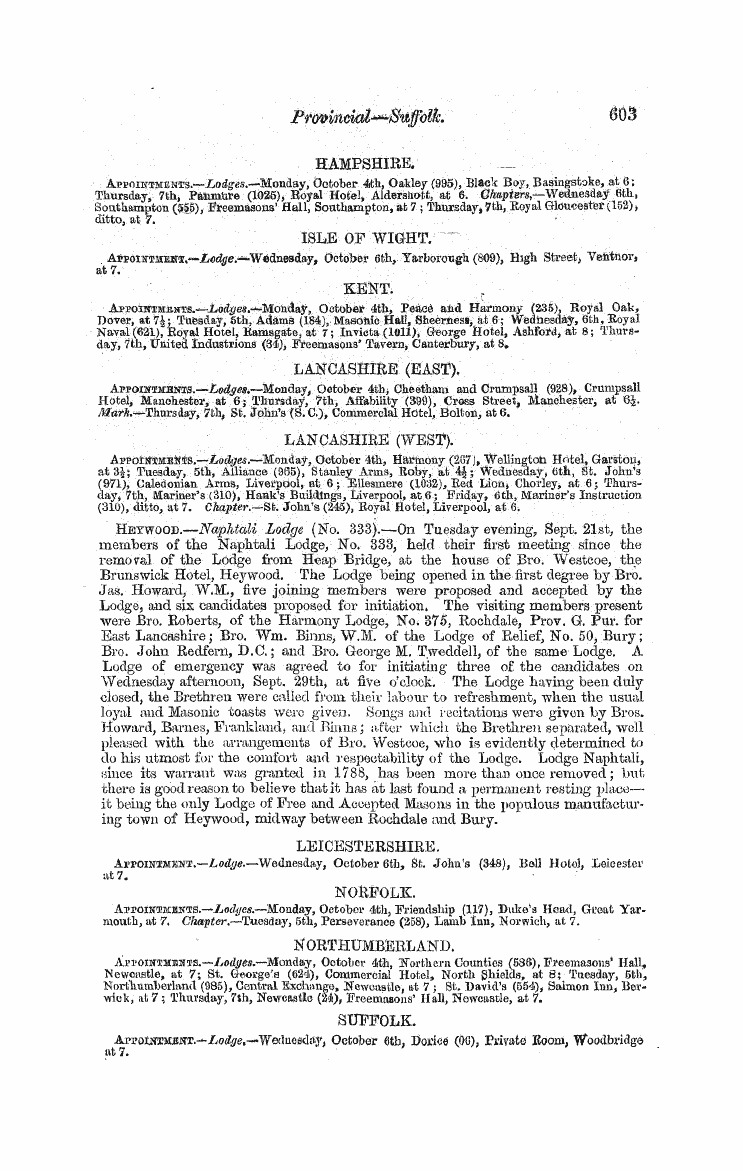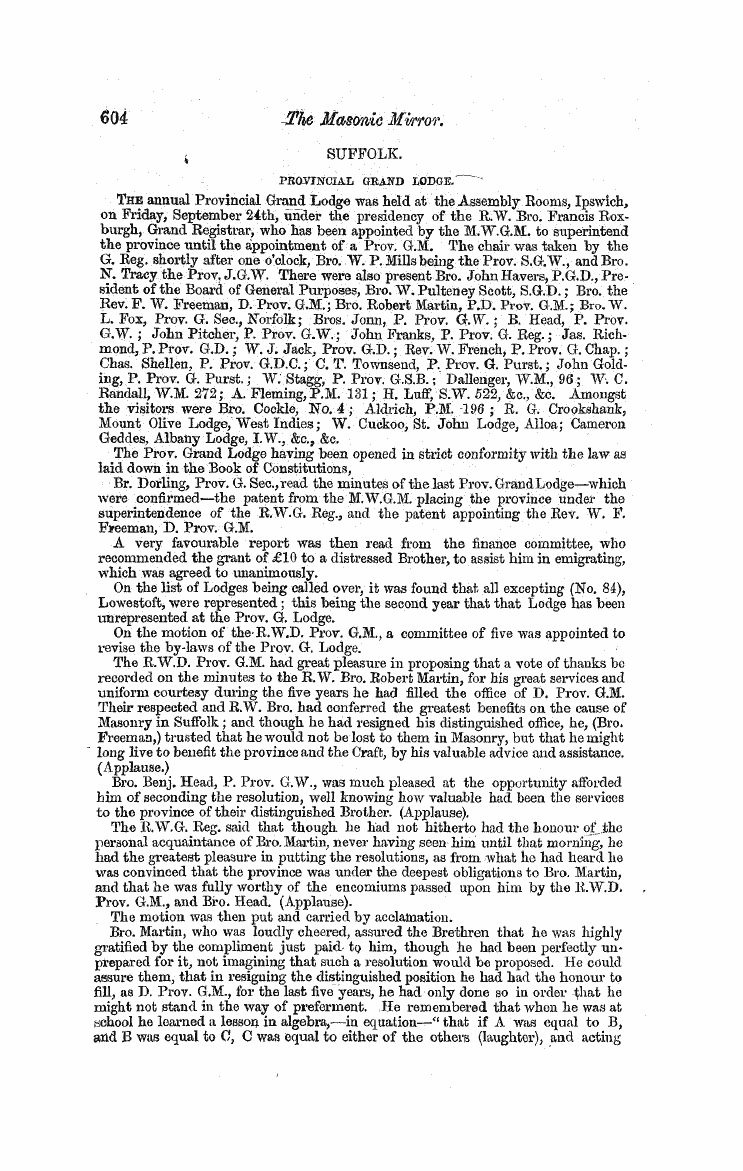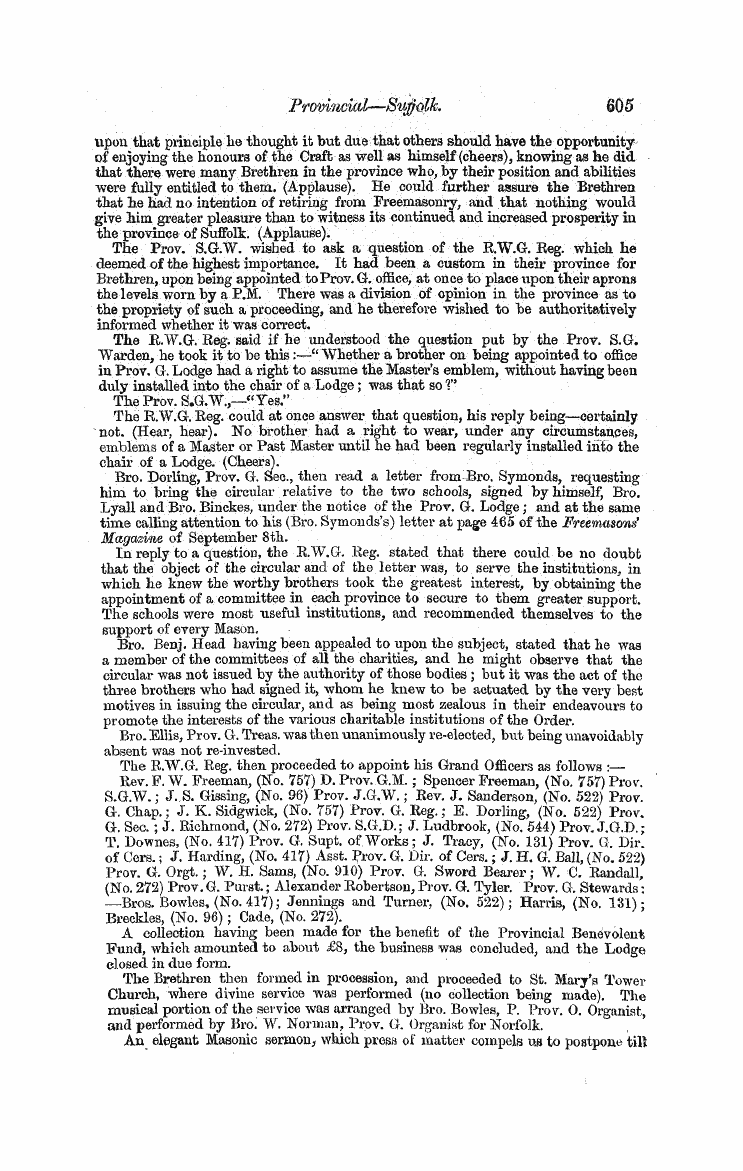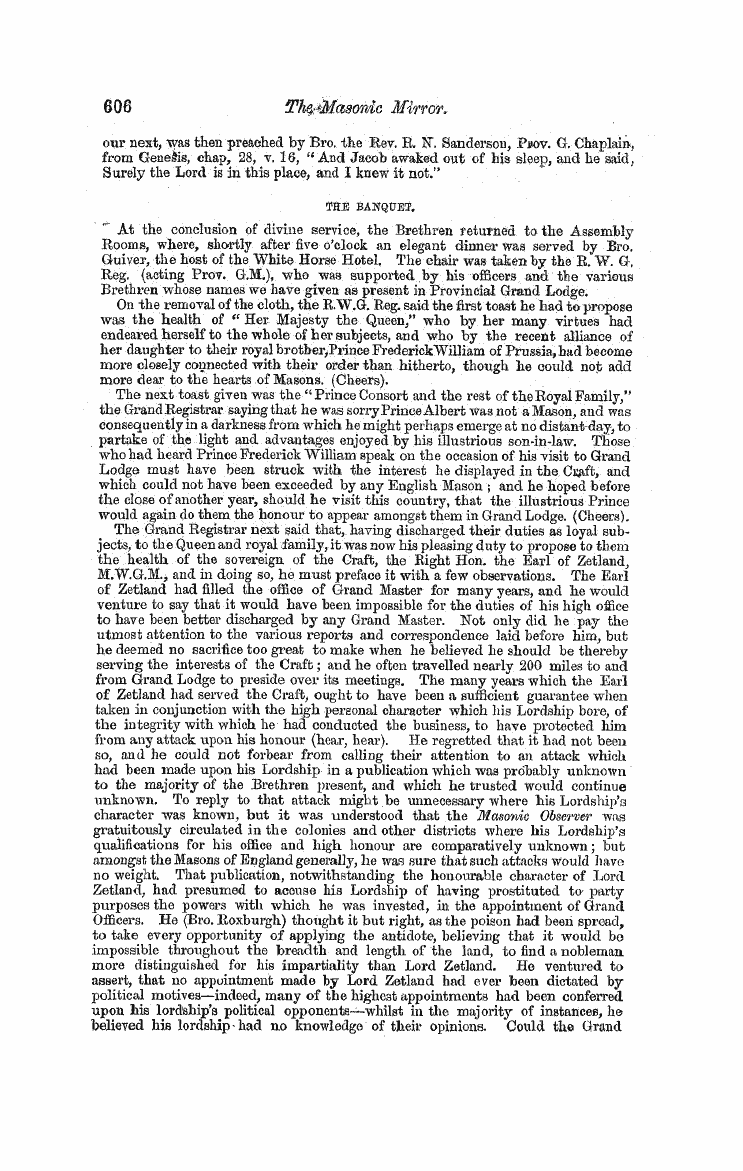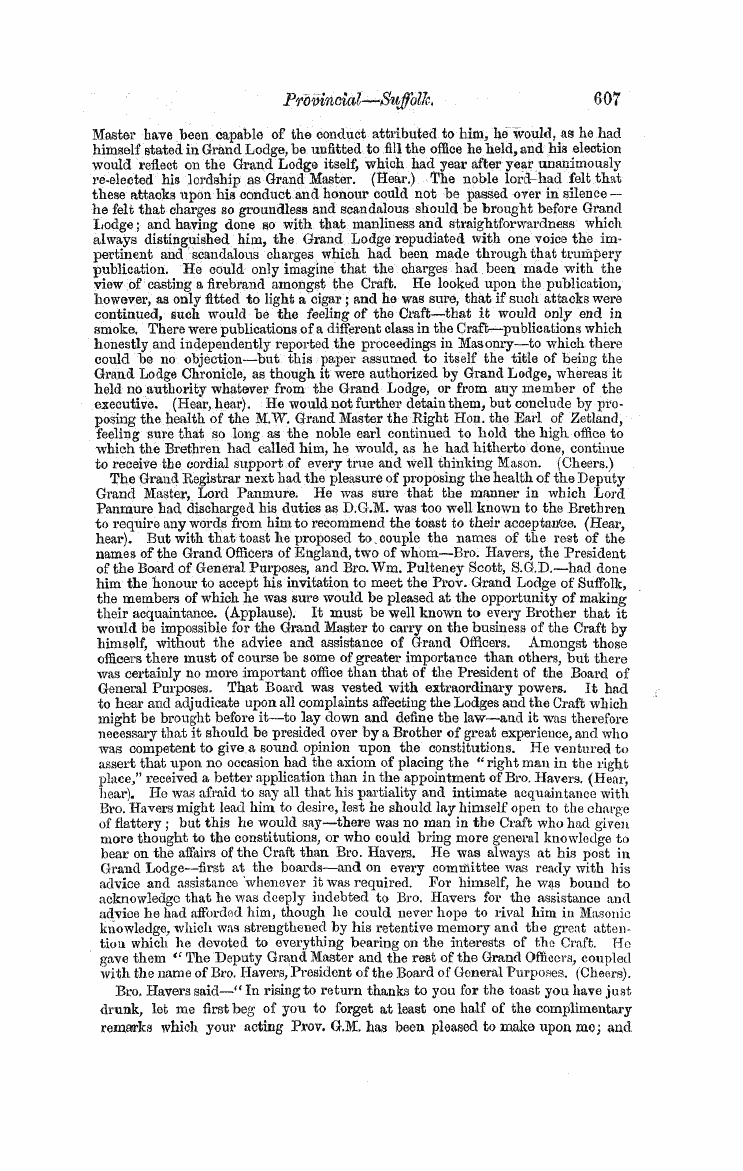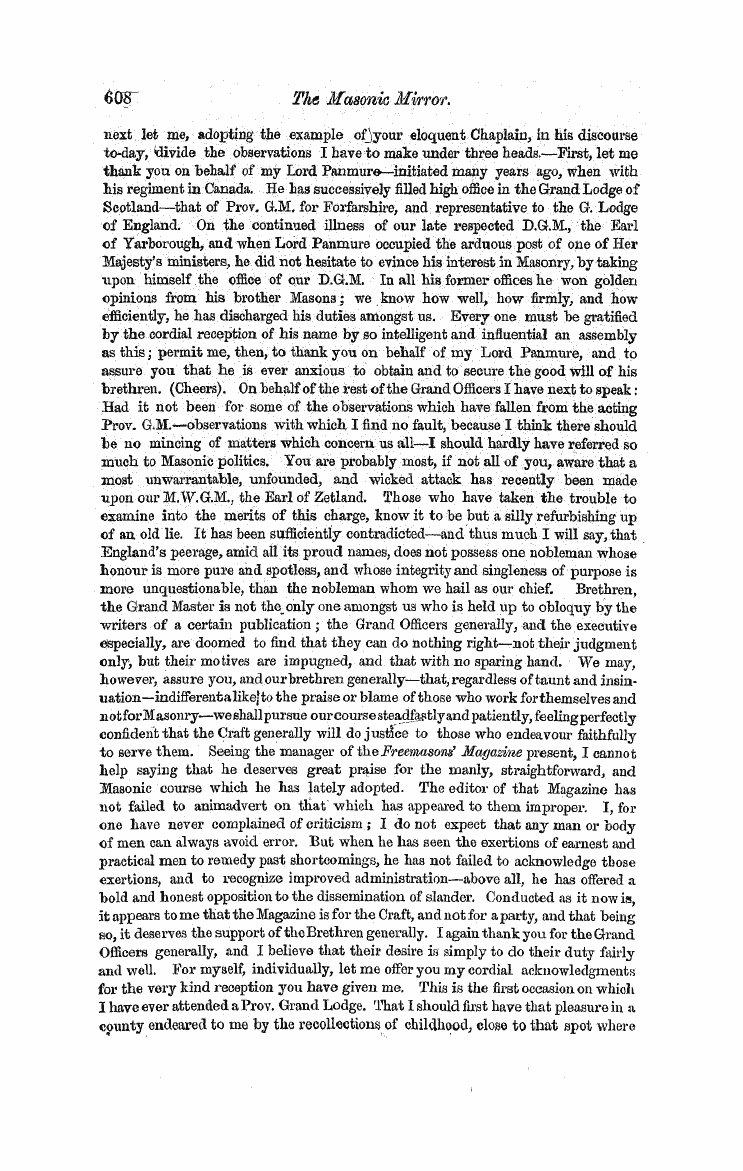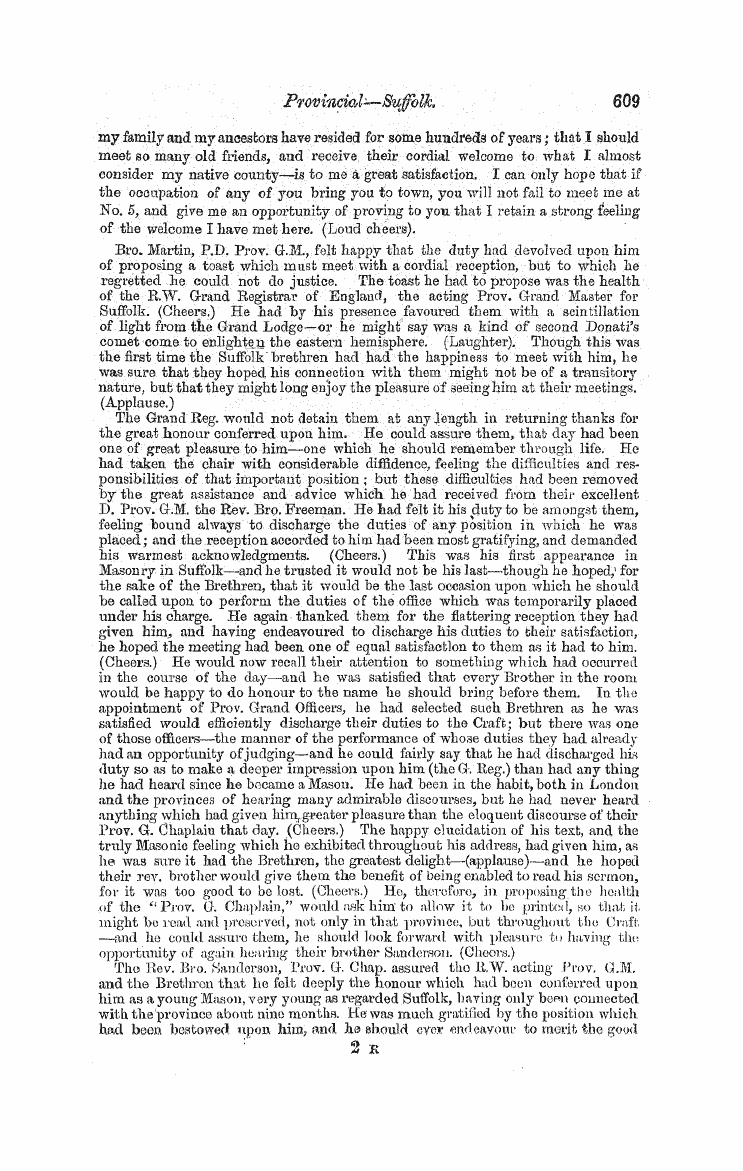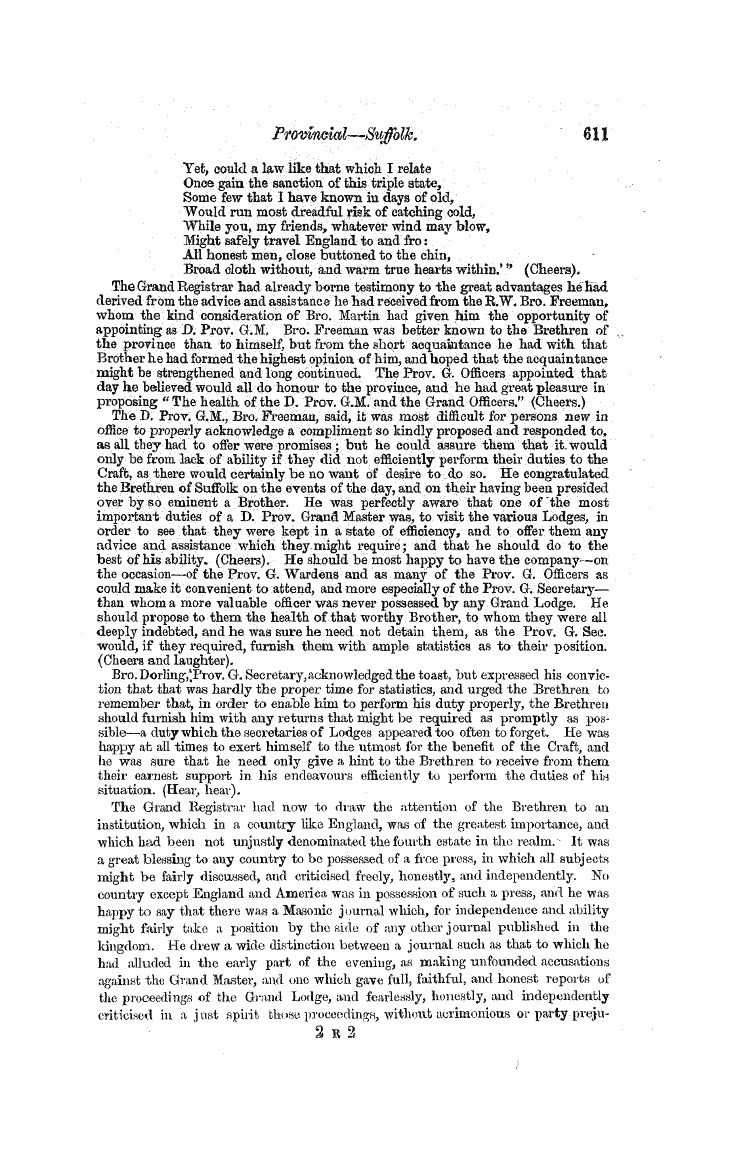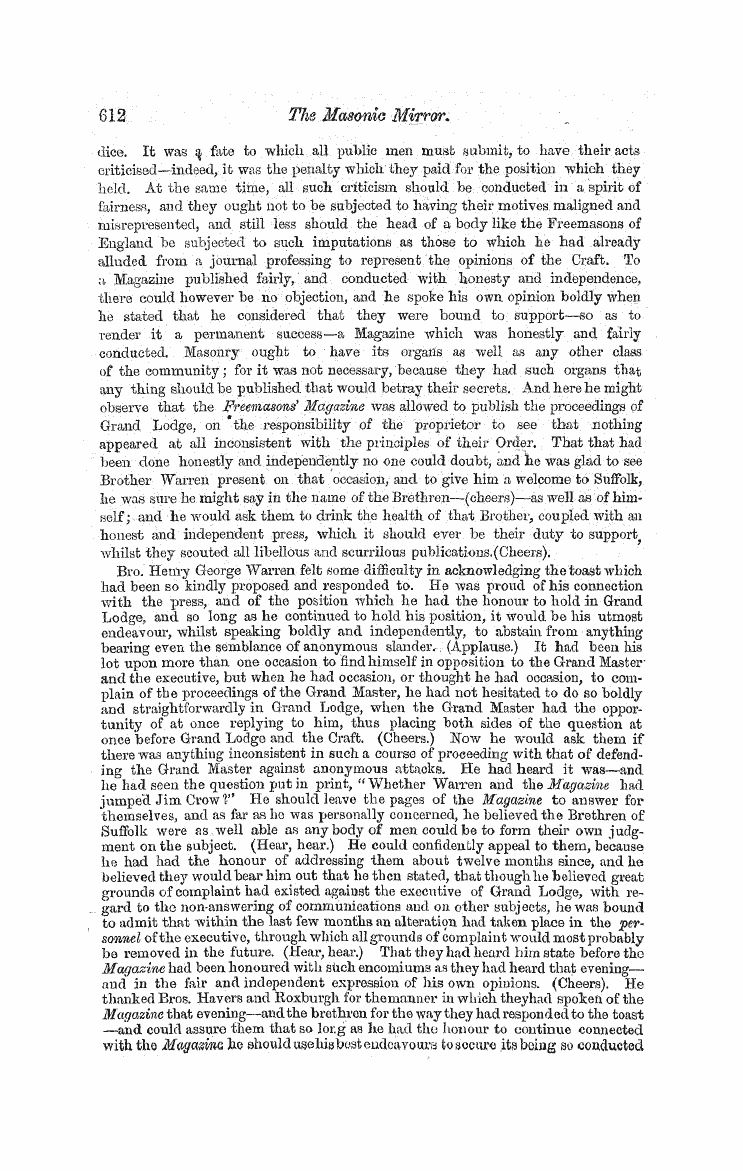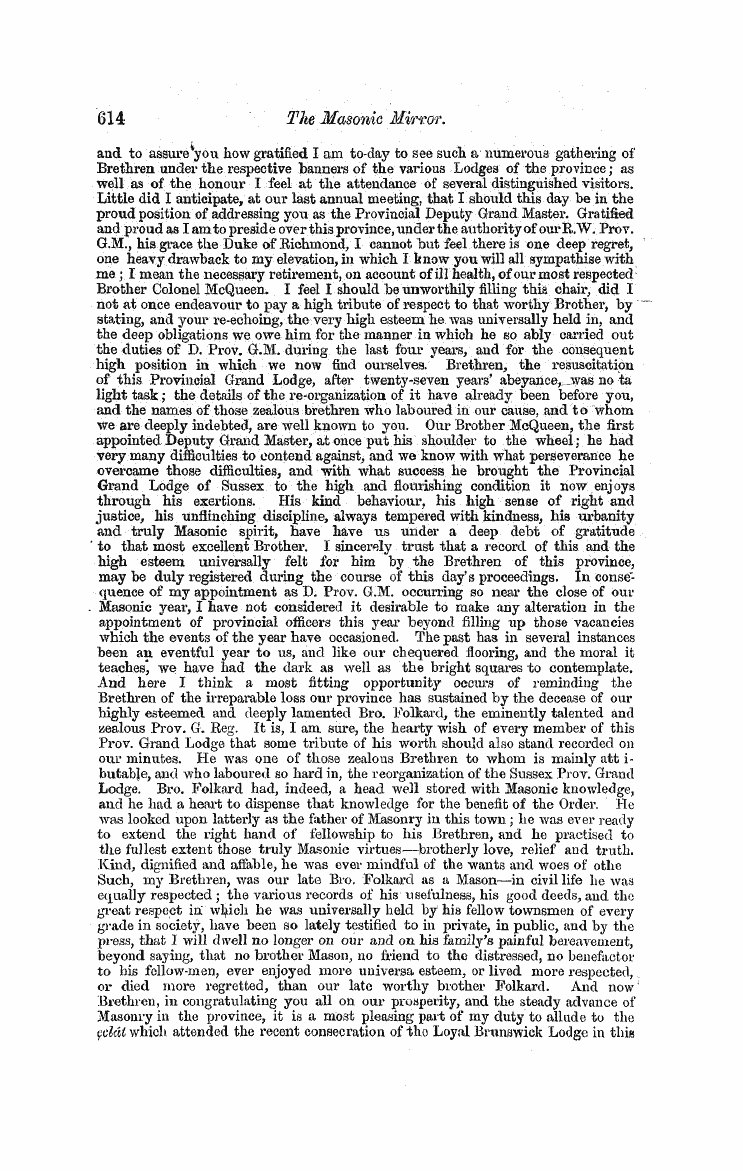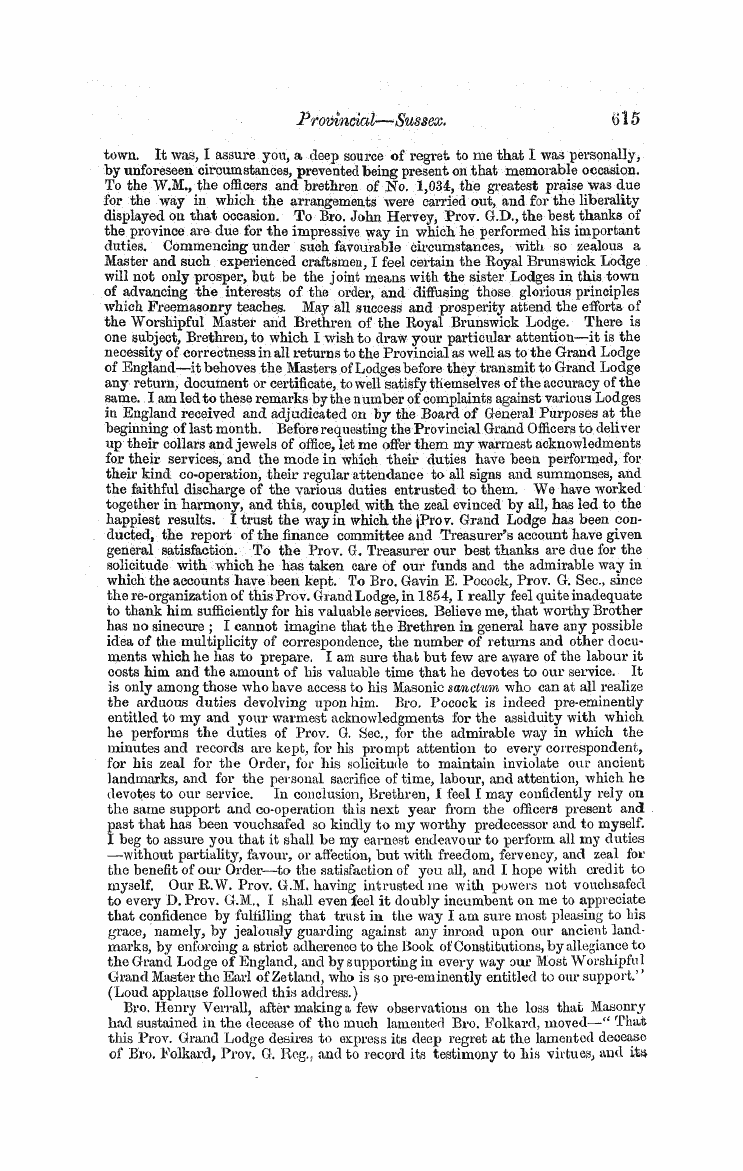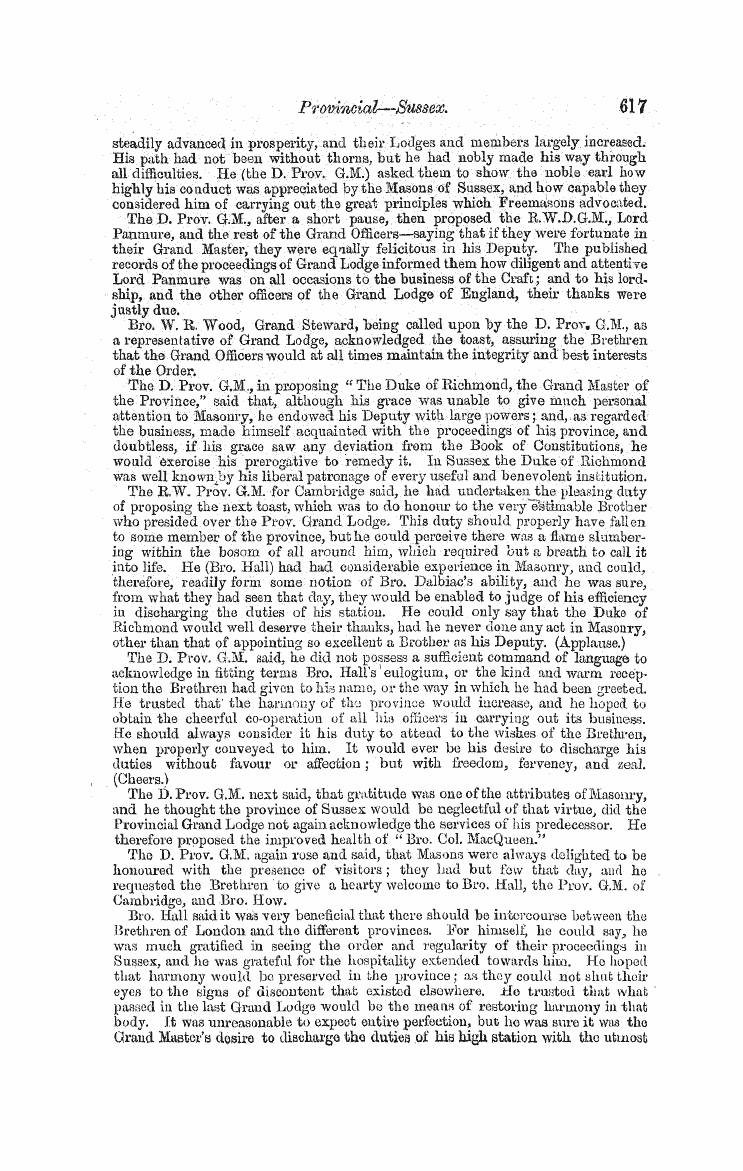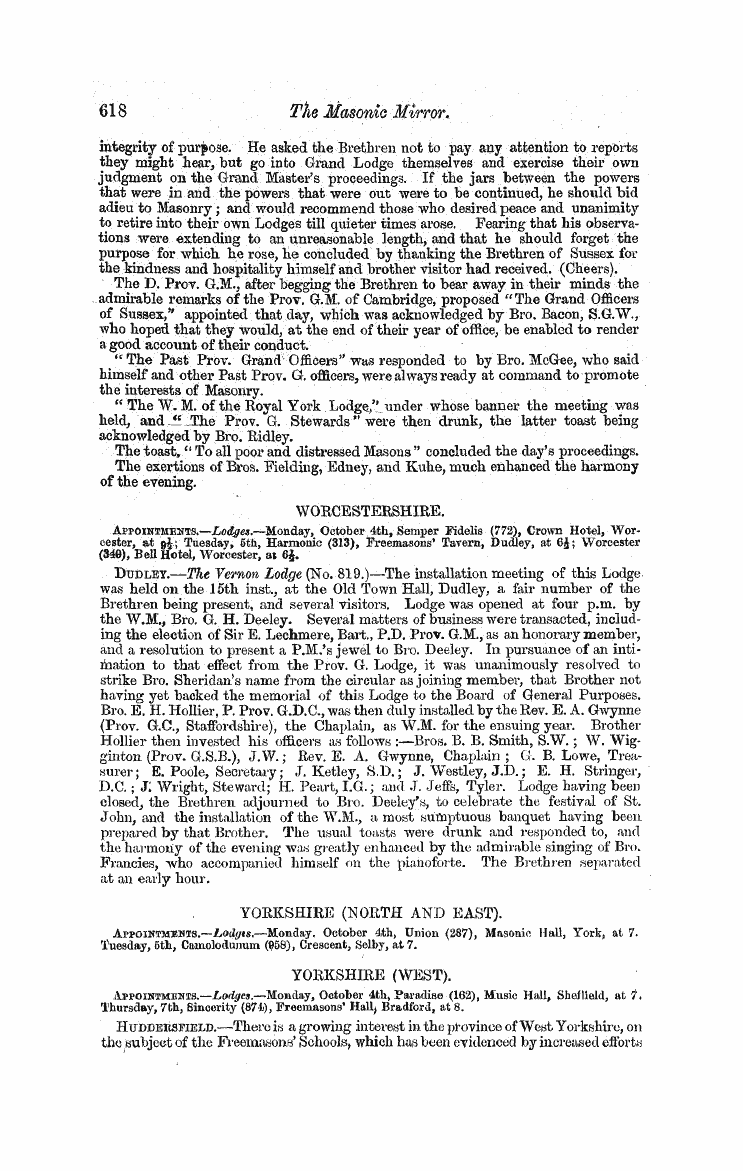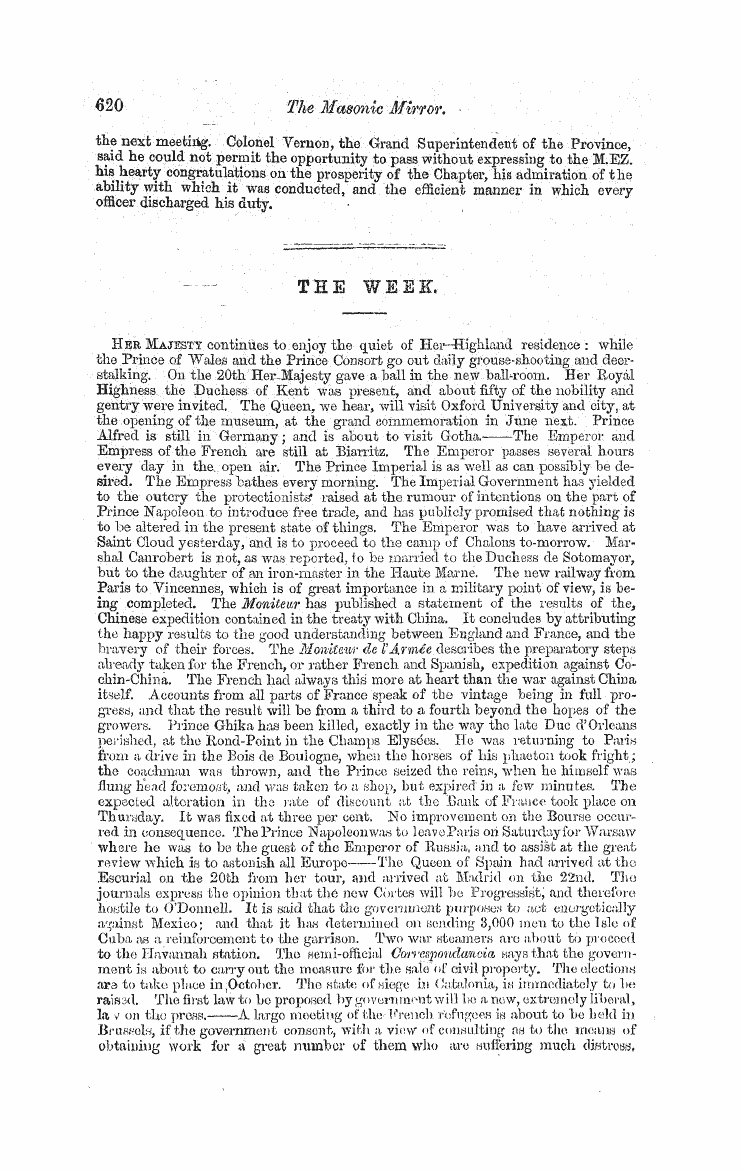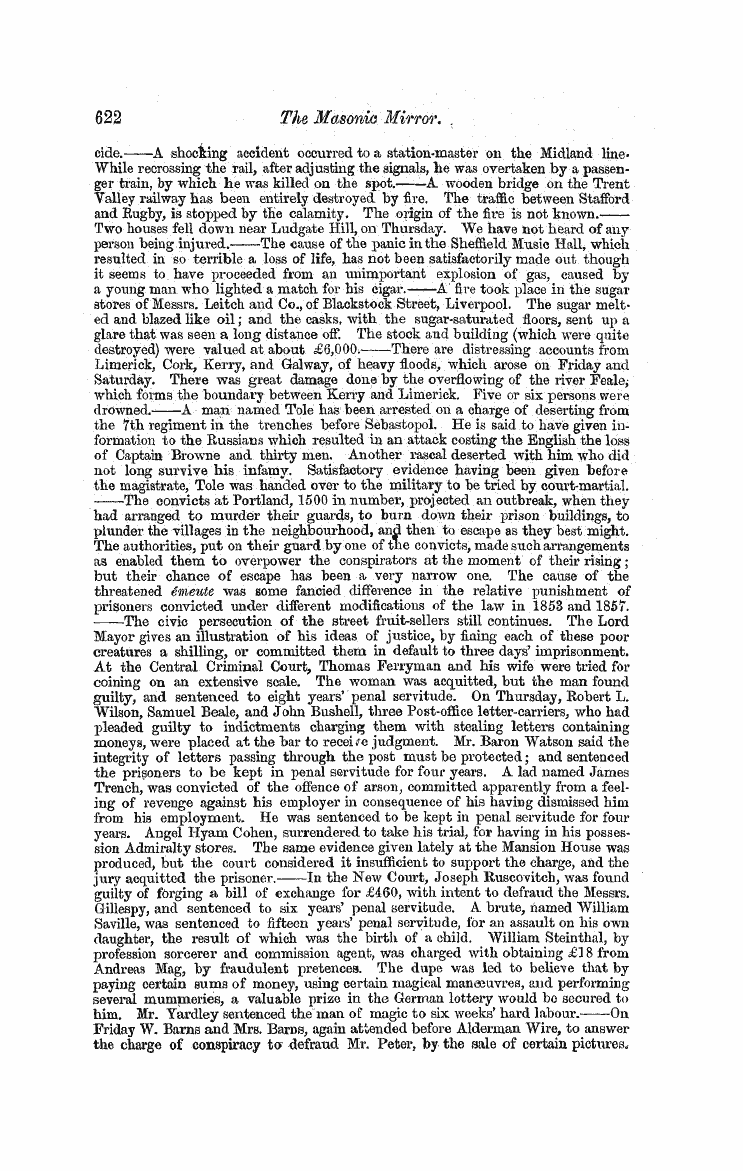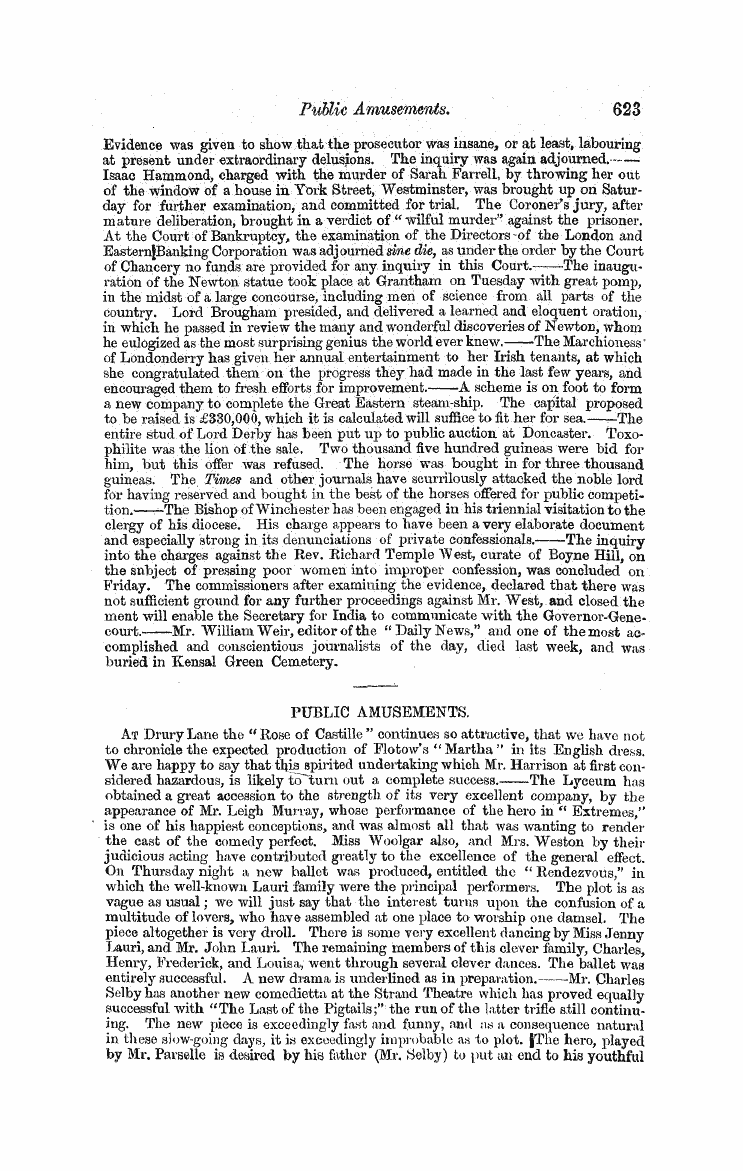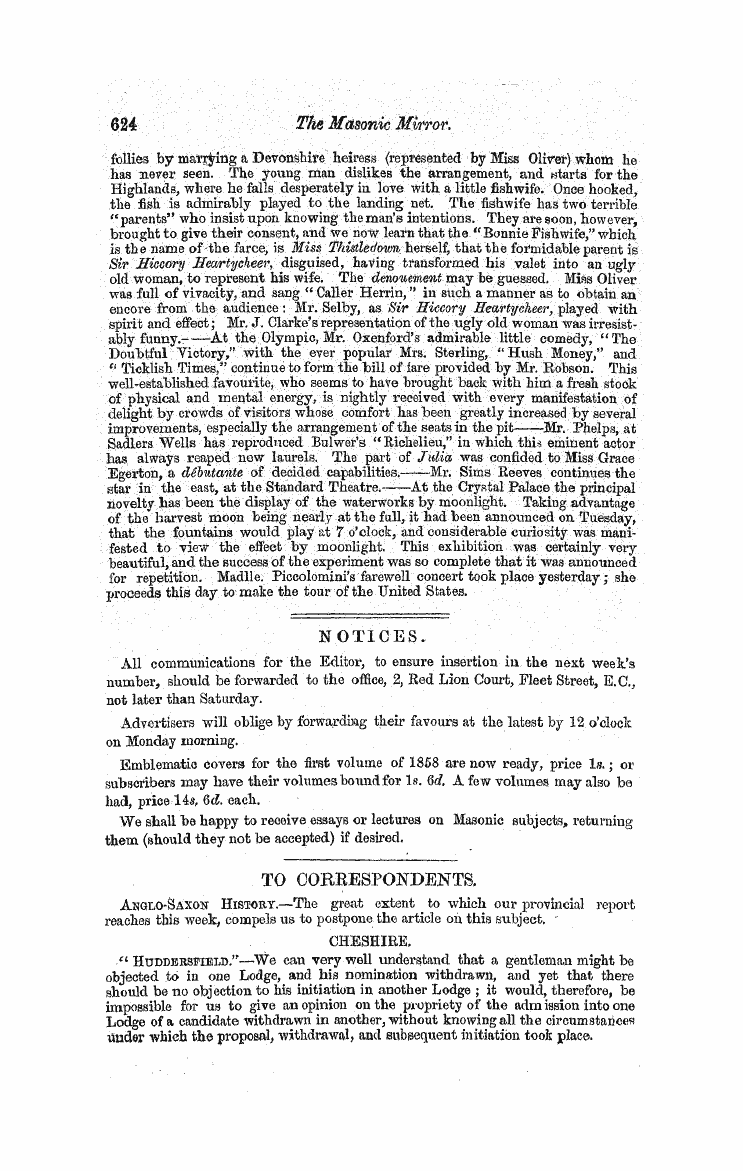-
Articles/Ads
Article A^CLO¦> SAXOH HISTORY ILLUSTRATED BY TOP... ← Page 3 of 5 →
Note: This text has been automatically extracted via Optical Character Recognition (OCR) software.
A^Clo¦> Saxoh History Illustrated By Top...
It is assumed that , instead of his being so called from his functions being directed to-guard the coasts from the Saxon sea- ^ the Romans ^ to whose invasions all the Roman writers bear witness , there ; m ^
invaders who made good their footing ; and hence the country was called the Saxon shore , and its inhabitants constituted a Saxon colony under the government of the Count of the Saxon shore . To this Saxon settlement , and to the other Germanic settlements throughout the country , settlers from . Germania resorted , and hence they obtained a further and stronger footing in this country .
This looks like what it is—a romance , when we come to compare it with the history of the like operations in other parts of the Roman empire , for it must be borne in mind that , although we may not possess souiid or perfect materials for the history of one country , we may possess such materials in the history of other countries under the like conditions , and can thereby obtain a safe guidance for our judgment . Although one portion of the facts may be wanting , yet we may have
all the remaining fticts otherwise preserved , and be able to a great extent to restore or provide for the misshig portion ; for , as there is a comparative anatomy , wliich enables a Cuvier or an Owen , froma few bones to restore the animal to its proportions , beca > use the other parts are supplied by the observation of other animals , so there is a comparative history which gives us a mass of facts of a like kind , enabling us to supply the missing portions .
In the case of that portion of the history of Britain , which relates to the epoch of English settlement , it is to a great degree supplied by the history of the Romans , by the general history ofthe Germani , and the history of the Celts . The history of the Romans in Gaul , in Spain , and in Italy , will show the limit of their capabilities in Britain . The
history of the Germani * will show how they were engaged , and what was the course they pursued , and the condition of the Celtic population under Roman and Germanic invaders , and when in a state of political or comparative independence , will illustrate the facts relating to Britain .
* The words Germania , Germain , and Germanic , are here used instead of Germany , Germans , and German , because , by an erroneous modern application , the High Dutch—who form only a part ( and an inferior part ) of the Germanic race—are apt to be taken as the type of the Germani , and the area of Germany to he confounded with that of Germania , or the country occupied by the Germanic tribes .
This error , which is mischievous in its operations , is abetted by the High Dutch writers , by whom everything Germanic is brought to a High Dutch standard , and Germany , within its present hounds , treated as the territory of the race , to the exclusion of Friezeland , Holland , Flanders , and England . The modern Germanic area would , however , include the Cauadas and the United States .
In the time of Elizabeth , the words Dutch and Dutchmen were given to the High and Low Dutch , and so it has continued to he in the United States , and so they call themselves . By using the word Germany , the great distinction between High and Low Dutch is put out of sight , and the High Dutch are left to figure as the people of modern Germany , of which they form only a portion . In this way , too , the denationalization of the Low Dutch and Frisians is promoted , and an undue preference is given to the High Dutch over the Hollanders and Flemings .
Note: This text has been automatically extracted via Optical Character Recognition (OCR) software.
A^Clo¦> Saxoh History Illustrated By Top...
It is assumed that , instead of his being so called from his functions being directed to-guard the coasts from the Saxon sea- ^ the Romans ^ to whose invasions all the Roman writers bear witness , there ; m ^
invaders who made good their footing ; and hence the country was called the Saxon shore , and its inhabitants constituted a Saxon colony under the government of the Count of the Saxon shore . To this Saxon settlement , and to the other Germanic settlements throughout the country , settlers from . Germania resorted , and hence they obtained a further and stronger footing in this country .
This looks like what it is—a romance , when we come to compare it with the history of the like operations in other parts of the Roman empire , for it must be borne in mind that , although we may not possess souiid or perfect materials for the history of one country , we may possess such materials in the history of other countries under the like conditions , and can thereby obtain a safe guidance for our judgment . Although one portion of the facts may be wanting , yet we may have
all the remaining fticts otherwise preserved , and be able to a great extent to restore or provide for the misshig portion ; for , as there is a comparative anatomy , wliich enables a Cuvier or an Owen , froma few bones to restore the animal to its proportions , beca > use the other parts are supplied by the observation of other animals , so there is a comparative history which gives us a mass of facts of a like kind , enabling us to supply the missing portions .
In the case of that portion of the history of Britain , which relates to the epoch of English settlement , it is to a great degree supplied by the history of the Romans , by the general history ofthe Germani , and the history of the Celts . The history of the Romans in Gaul , in Spain , and in Italy , will show the limit of their capabilities in Britain . The
history of the Germani * will show how they were engaged , and what was the course they pursued , and the condition of the Celtic population under Roman and Germanic invaders , and when in a state of political or comparative independence , will illustrate the facts relating to Britain .
* The words Germania , Germain , and Germanic , are here used instead of Germany , Germans , and German , because , by an erroneous modern application , the High Dutch—who form only a part ( and an inferior part ) of the Germanic race—are apt to be taken as the type of the Germani , and the area of Germany to he confounded with that of Germania , or the country occupied by the Germanic tribes .
This error , which is mischievous in its operations , is abetted by the High Dutch writers , by whom everything Germanic is brought to a High Dutch standard , and Germany , within its present hounds , treated as the territory of the race , to the exclusion of Friezeland , Holland , Flanders , and England . The modern Germanic area would , however , include the Cauadas and the United States .
In the time of Elizabeth , the words Dutch and Dutchmen were given to the High and Low Dutch , and so it has continued to he in the United States , and so they call themselves . By using the word Germany , the great distinction between High and Low Dutch is put out of sight , and the High Dutch are left to figure as the people of modern Germany , of which they form only a portion . In this way , too , the denationalization of the Low Dutch and Frisians is promoted , and an undue preference is given to the High Dutch over the Hollanders and Flemings .































































































































































































